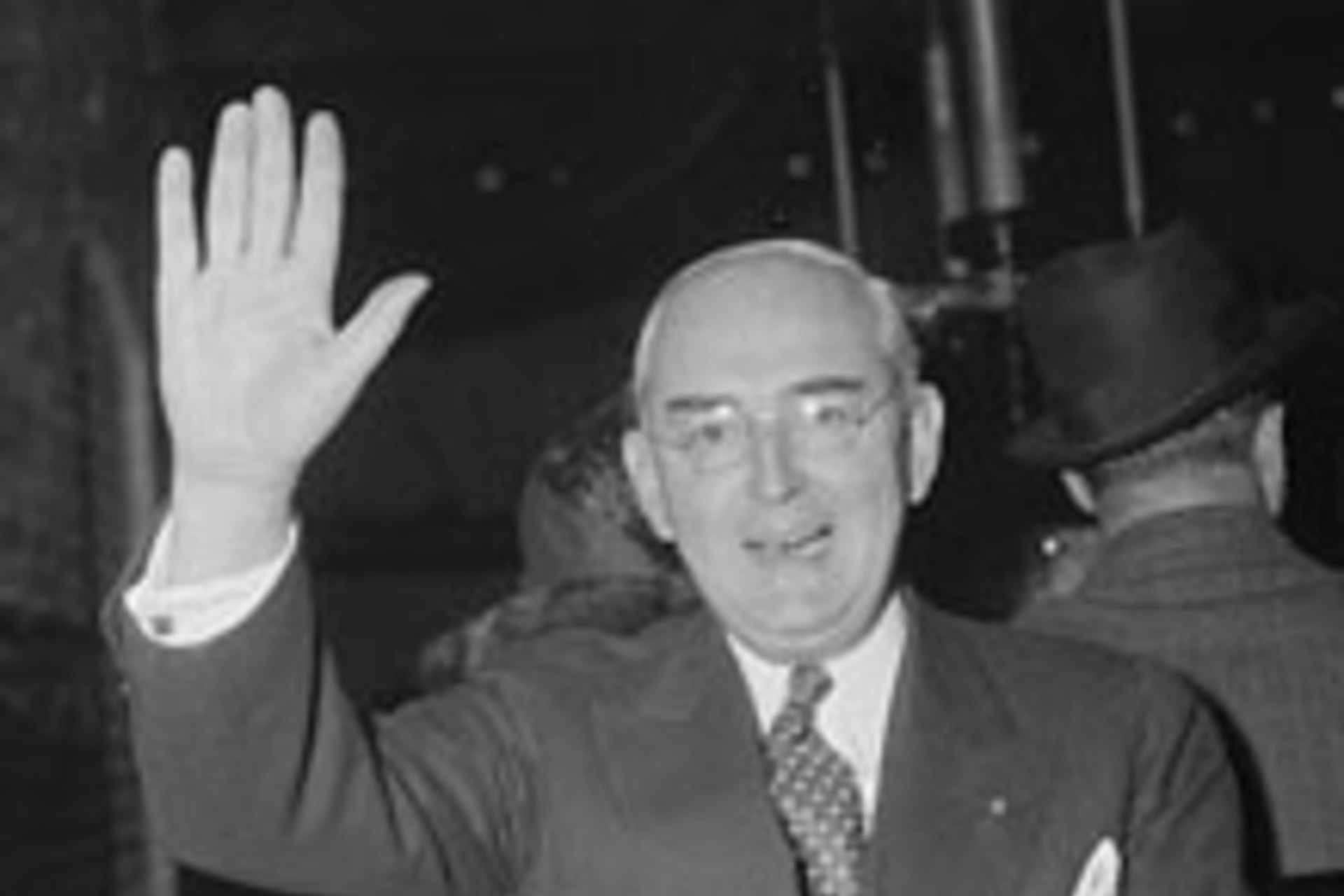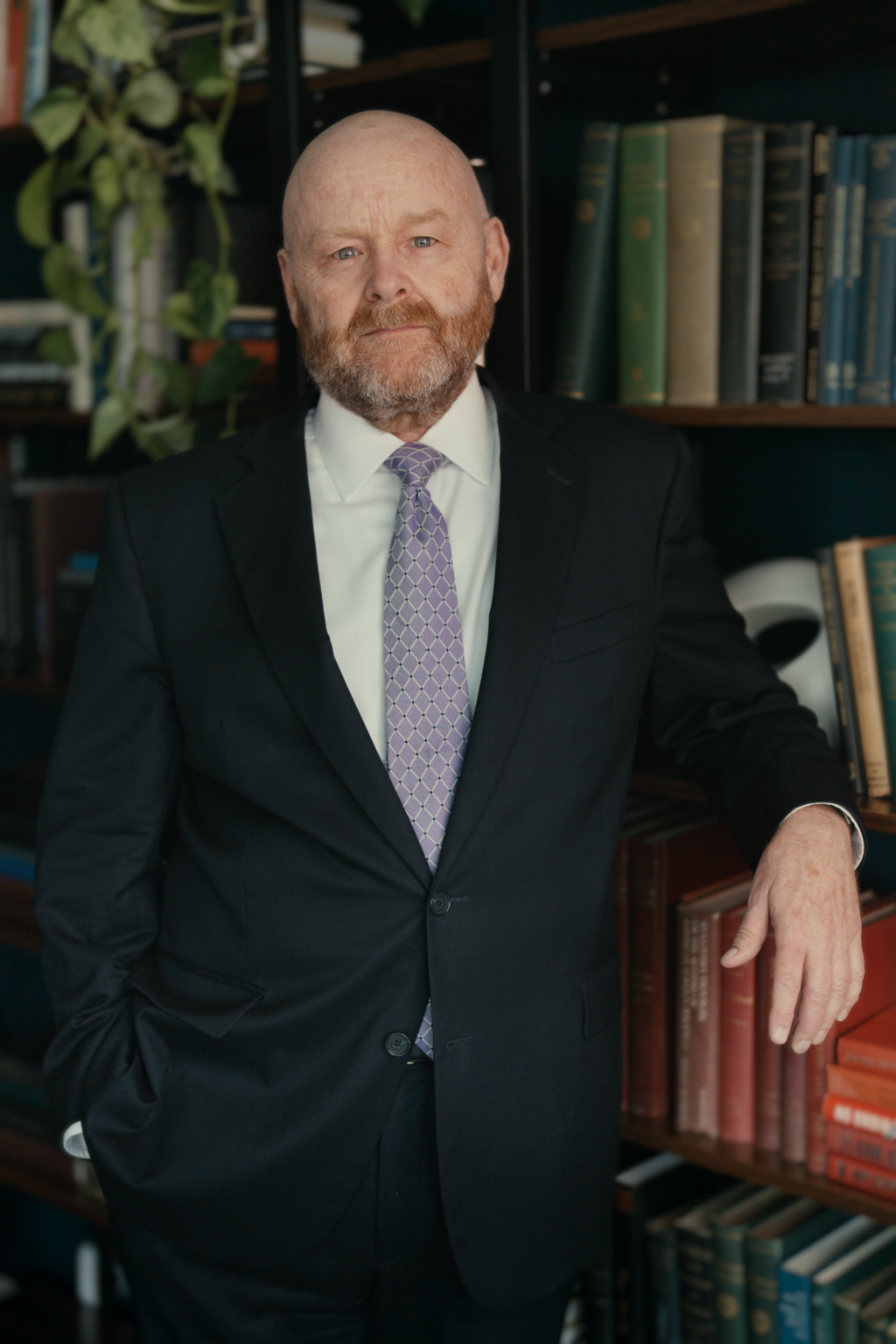TWE Remembers: Sen. Arthur Vandenberg’s Conversion to Internationalism

By experts and staff
- Published
Experts
![]() By James M. LindsayMary and David Boies Distinguished Senior Fellow in U.S. Foreign Policy
By James M. LindsayMary and David Boies Distinguished Senior Fellow in U.S. Foreign Policy
In a post earlier today, I mentioned that Sen. Arthur Vandenberg (R-MI), a leading isolationist voice on Capitol Hill in the years before World War II, dismissed the Ludlow Amendment as a terrible idea. Today also happens to be the anniversary of the major speech Vandenberg gave in 1945 on the floor of the Senate renouncing his isolationist views and embracing internationalism.
Vandenberg spent much of the 1930s advancing the isolationist cause. He feared that FDR would entangle the United States in another European war, so he sought to limit the president’s discretion in foreign affairs. He championed strict neutrality, helping to pass a series of neutrality acts that restricted arms sales and other trade with potential and actual belligerents. (The neutrality acts are another example of a well-intentioned but ultimately counter-productive foreign policy idea.) Even Pearl Harbor did not convert him. He blamed what he called “Roosevelt’s private war” on FDR’s “secret diplomacy which pointed straight toward war for many months preceding” the attack.
So it was surprising when Vandenberg took the floor of the Senate on January 10, 1945 to make the case for internationalism and strong presidential leadership in foreign policy. The Senate’s website on classic Senate speeches summarizes his address:
Senators and spectators in the galleries listened for thirty minutes as Vandenberg….declared that, although he had once “believed in our own self-reliance,” the “gory science of mass murder” had transformed modern warfare into “an all-consuming juggernaut.” “I do not believe,” he reasoned, “that any nation hereafter can immunize itself by its own exclusive action.” Restraining himself from condemning Stalin’s plan to erect “a surrounding circle of buffer states” around the Soviet Union to prevent a resurgence of German aggression, he suggested “collective security” as an alternative approach. To Roosevelt’s surprise, the Michigan Republican offered an “olive branch” to promote a closer working relationship between president and Congress: “we can agree,” “ he conceded, ”that we do not ever want an instant’s hesitation or doubt about our military cooperation in the peremptory use of force . . . to keep Germany and Japan demilitarized.“ But ”there should be no more need to refer any such action back to Congress than that Congress should expect to pass upon battle plans today. The commander in chief should have instant power to act, and he should act.“
To put Vandenberg’s address in contemporary terms, it would be as if Sen. Jon Kyl took to the Senate floor this afternoon to embrace arms control and call for passage of the Comprehensive Test Ban Treaty.
Vandenberg’s conversion to internationalism helped persuade other Republicans to follow suit, and it laid the groundwork for a bipartisan foreign policy in the years immediately after World War II. Six months after Vandenberg’s speech the Senate voted 89 to 2 to approve the UN Charter.
(Historical aside. Vandenberg Air Force Base is not named after Senator Vandenberg. It is named after his nephew, former Air Force Chief of Staff General Hoyt S. Vandenberg. Quite a family.)
